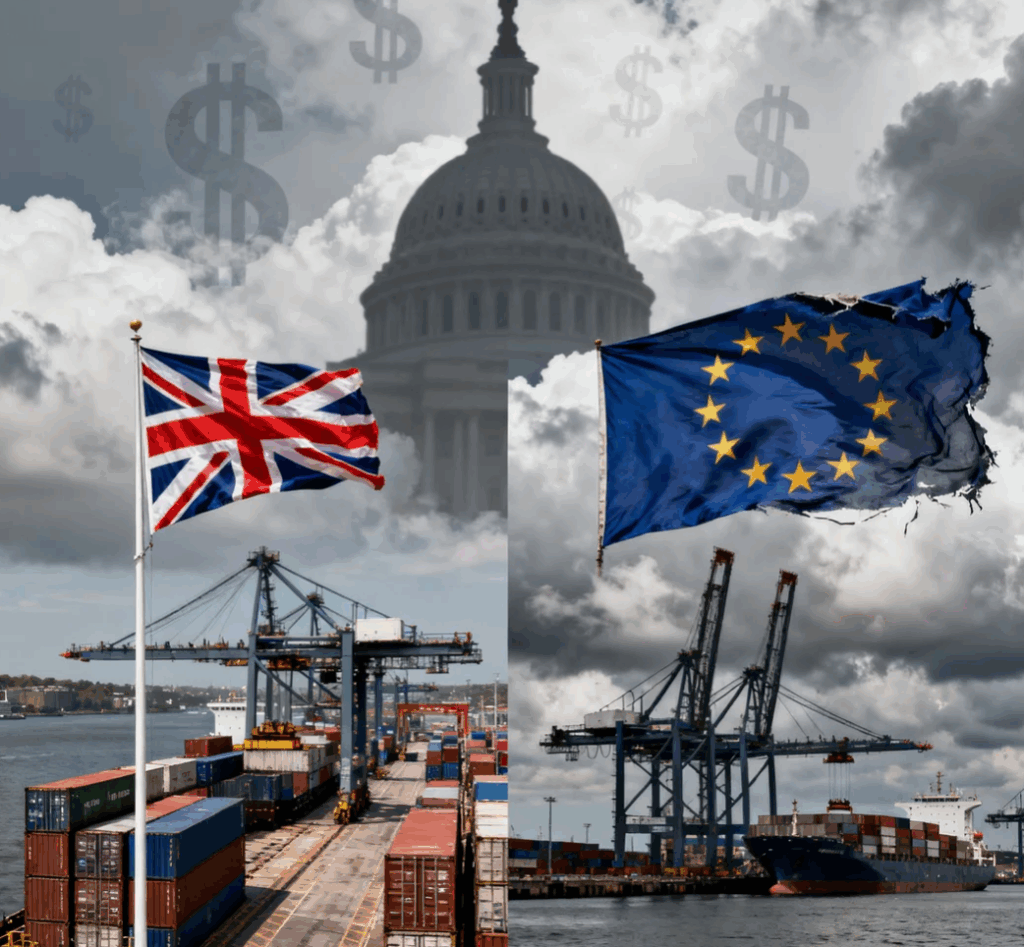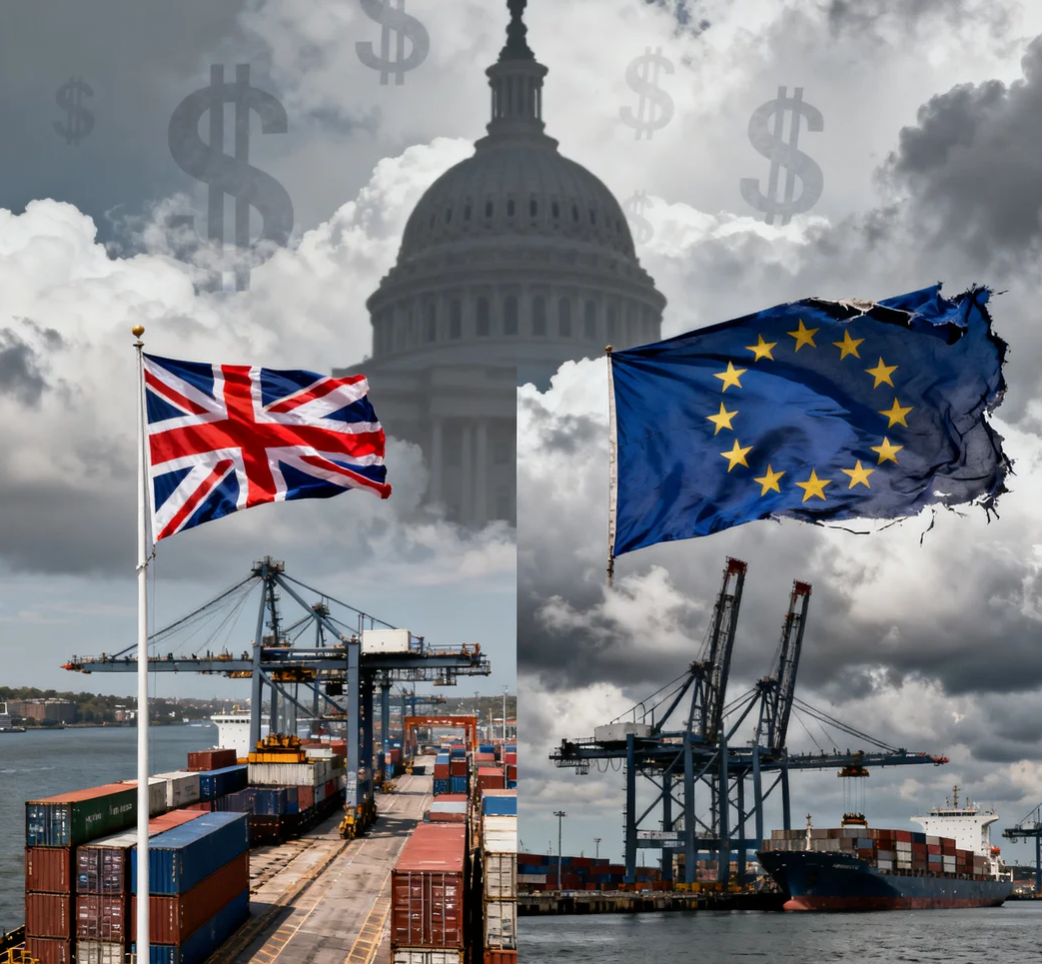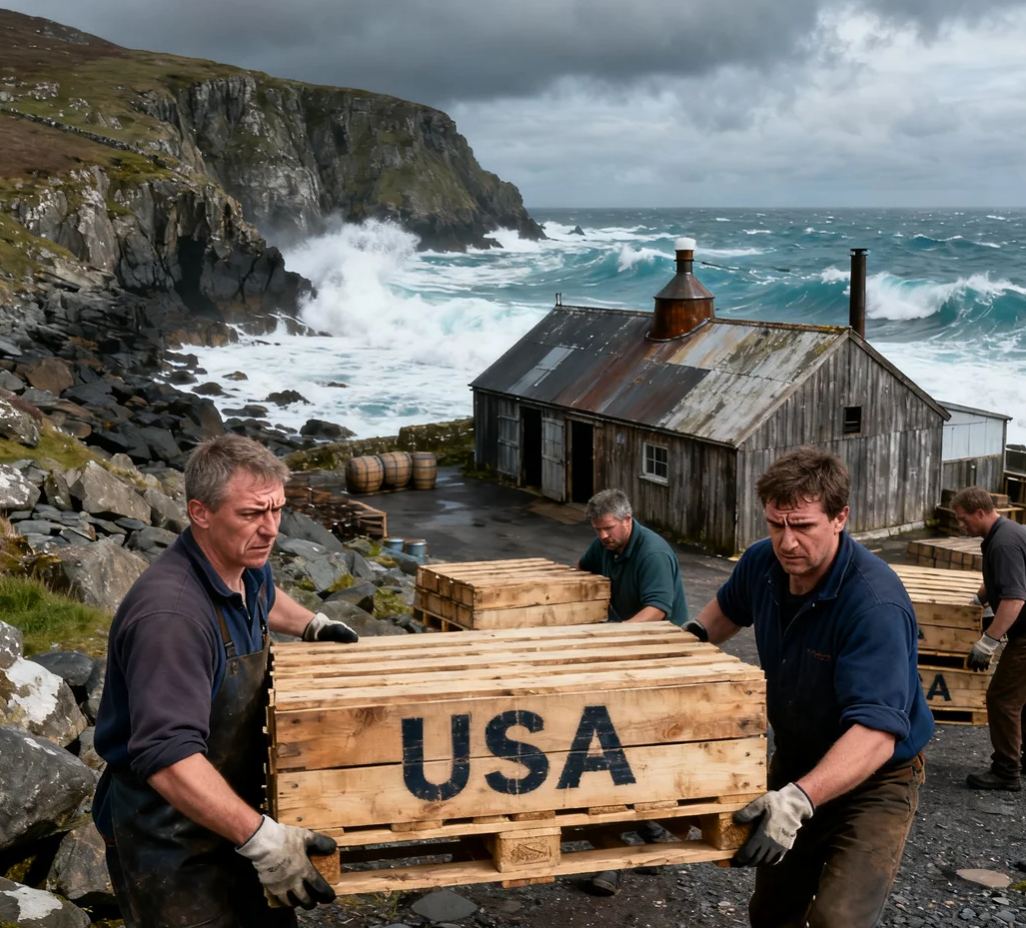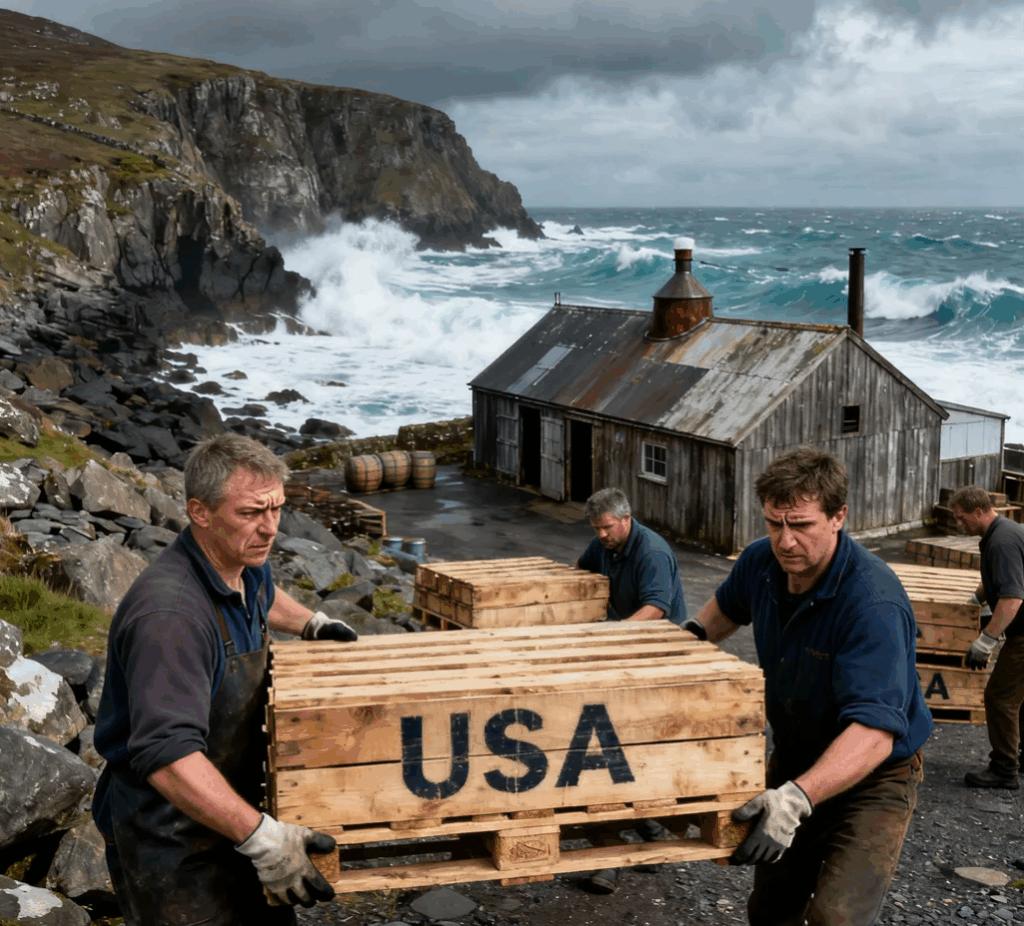As policymakers across Europe digest the fallout of the new EU-U.S. trade agreement, some economists argue that the deal—widely seen as a setback for the bloc—could prove to be an unexpected lifeline for the U.K.
Under the agreement, European Union goods heading to the United States will now face a 15% tariff, compared to just 10% for products coming from Britain. That small gap could carry big consequences.
“In theory, the U.K. benefits,” said Philip Shaw, chief economist at Investec. “The higher EU tariff makes British exports to the U.S. relatively cheaper, potentially giving U.K. trade a competitive edge.”
For American companies, the cost difference may also tilt demand in favor of British products, notes Alex Altmann of Lubbock Fine LLP. He suggests the lower rate could even push some EU manufacturers—especially those with slim margins—to consider relocating production to the U.K., where Brexit has left spare capacity.

Not Just a One-Sided Story
Still, the U.K.’s advantage comes with caveats. The EU did avoid a much more punishing scenario: U.S. President Donald Trump had floated a 30% tariff, which could have tipped the bloc into a downturn. By sidestepping that cliff, Europe also spared the U.K. from the ripple effects of an EU recession.
“The U.K. benefits indirectly as well,” Shaw explained, noting that a sharp contraction in the EU would have dragged down U.K. exports across the Channel.
Will It Actually Boost Britain?
Whether this tariff gap meaningfully shifts trade flows remains an open question. Beth McCall, an international trade lawyer at Dentons, points out that the difference between 10% and 15% is modest compared with the shock that a 30% tariff would have caused.
“Existing contracts and supply chains don’t change overnight,” she said. “The real effects could take months—or years—to filter through.”
Meanwhile, both the EU and the U.K. now face a more difficult export landscape. “Whether the new rate is 10% or 15%, the fact remains that businesses on both sides of the Channel will be paying far higher tariffs than they were just three months ago,” McCall said.
The Bigger Picture
For now, the U.K. may look like a relative winner—but only in the sense of losing less. Lower tariffs give Britain an opening, but global trade remains clouded by uncertainty, higher costs, and tense politics. The ultimate outcome will depend not just on the percentages written into agreements, but on how quickly businesses adapt to the new playing field.


